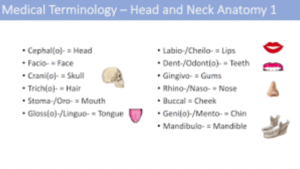Can Herbs Replace Prescription Drugs? Let Me Explain.

Wondering if herbs can replace prescription drugs? Let’s sort out the facts, myths, and risks, and see how natural treatment measures up to conventional medicine.
You know what? This question — can herbs replace prescription drugs — pops up all the time. Honestly, it’s no surprise. Herbs have been used for centuries. They’re right there in grandma’s garden, in your kitchen cabinet, in those fancy teas we sip while scrolling through Instagram.
So, you might think, “Why not ditch the pills and go natural?” I get it. It sounds so simple, so appealing.
But here’s the thing — it’s not that straightforward.
Why Do People Feel So Drawn to Herbs? It’s More Than Just Health

I’m guessing you’ve felt it too. There’s something cozy and real about herbs. Maybe it’s the smell of fresh basil or the warmth of ginger tea. It’s like stepping into a simpler time when healing was done with what the earth gave us.
Plus, pills can feel cold and clinical. Side effects, complicated schedules, insurance hassles — the list goes on.
So yeah, reaching for herbs is about more than health. It’s about control, comfort, and sometimes, culture. My grandmother swore by mint to settle stomach aches — and you know what? It worked for her. But does that mean it can fully replace modern medicine? Let me be honest: probably not.
Busting Herbal Myths That Can Actually Be Dangerous

Here’s a little story: a friend stopped her heart meds because she read online that hawthorn berry could “fix” her condition. Spoiler — she ended up in the ER.
So, let’s clear the air on some common herbal myths:
-
Myth #1: Natural means safe. Ever heard of poison ivy or deadly nightshade? Nature doesn’t hand out safety guarantees.
-
Myth #2: Herbs don’t cause side effects. They can — especially if mixed with prescription meds without medical advice.
-
Myth #3: Doctors want to keep herbs a secret. That sounds like a conspiracy theory. Most doctors just want you safe and informed.
-
Myth #4: Herbs can cure all illnesses. If only it were that simple. Herbs help sometimes but aren’t magic cures.
So, if you’re asking can herbs replace prescription drugs, these myths highlight why you need to be cautious.
You Know Why People Choose Herbs Over Pills? It’s Emotional, Not Just Logical.

Honestly, it’s about trust, tradition, and sometimes skepticism of “Big Pharma.” Side effects and feeling like just another patient can push people toward herbs.
Plus, herbs seem affordable and accessible.
But here’s a question: if your blood pressure spikes, will a cup of hibiscus tea keep you safe? Probably not. This isn’t about guilt — just facts.
Natural Treatment vs Conventional Medicine — What You’re Not Being Told
The “herbs good, meds bad” fight? Overhyped.
Think cooking. Prescription meds are your reliable staples — salt, sugar — precise and consistent. Herbs? Your spices — they add flavor and sometimes help, but rarely make the whole dish.
So, instead of asking if herbs can replace prescription drugs, ask how they can work together for your health.
Here’s the Danger: Replacing Medication With Herbs Without a Plan Is Risky Business

You’ve probably heard stories of people quitting meds for herbs and ending up worse off. It’s not just hearsay — it’s real.
For example, St. John’s Wort can make birth control pills ineffective. Ginkgo biloba might cause bleeding if combined with blood thinners.
Stopping meds suddenly? Like ignoring your car’s check engine light and hoping it fixes itself.
Serious conditions like diabetes, epilepsy, or heart failure need steady treatment. Always talk to your doctor before changing anything.
Are Herbal Remedies Effective? The Short Answer: Sometimes

Turmeric has anti-inflammatory effects. Ginger calms upset stomachs. Elderberry may shorten colds. Valerian root can help some people sleep.
But most herbal studies are small or inconclusive. Think of it like using a Swiss Army knife when a chainsaw is needed. Handy for some jobs, not all.
So yes, herbal remedies can be effective, but usually as helpers — not solo stars.
What Science Says About Herbs vs Prescription Drugs
| Feature | Herbs | Prescription Medications |
|---|---|---|
| Regulation | Varies, loosely controlled | Strictly regulated, tested |
| Dosage | Varies by batch and brand | Precise and standardized |
| Research | Limited big trials | Large, rigorous clinical trials |
| Safety | Some risks and interactions | Known side effects documented |
| Use | Mild symptoms, prevention | Serious and chronic diseases |
Real Talk: A Patient’s Story About Combining Herbs and Medicine
Take James. Arthritis meds helped but left him foggy and drained. With his doctor’s okay, he added omega-3s, turmeric, and acupuncture.
Result? Better pain control, more energy.
That’s not ditching meds — it’s teamwork between nature and science.
Questions to Ask Before You Swap Meds for Herbs

-
Am I treating something mild or serious?
-
Is this herb supported by good research?
-
Could it interact with my meds?
-
Am I basing this on feelings or facts?
-
Have I told my doctor?
-
Am I supplementing or replacing meds?
A little pause here can save a lot of trouble.
How to Stay Safe If You’re Interested in Herbs
Curious about herbs? Check trusted resources like the National Center for Complementary and Integrative Health (NCCIH), the Mayo Clinic’s herbal supplements guide, and for a personalized look at how herbs might interact with your meds, visit EvaluateMyMeds.com.
Remember, your health is a journey — take it one informed step at a time.
Final Thoughts: Can Herbs Replace Prescription Drugs?
Honestly? Sometimes herbs help with minor issues or support wellness. But they rarely replace meds for chronic or serious illnesses.
The smartest move? Use herbs thoughtfully, keep your doctor in the loop, and never stop prescribed meds suddenly.
Herbs aren’t magic, but used wisely, they’re powerful allies.
FAQ
Q1: Can I stop taking my prescription meds and just use herbs?
No. You should never stop prescribed medications without your doctor’s approval. Herbs can interact with meds or be ineffective for serious conditions.
Q2: Are herbal supplements regulated like prescription drugs?
No, herbal supplements are less regulated, so strength and purity can vary widely.
Q3: Can herbs cause side effects or interact with medications?
Yes. Some herbs can cause side effects or dangerous interactions. Always check with a healthcare provider.
Q4: Are there herbs scientifically proven to help certain conditions?
Some herbs like turmeric (inflammation) and peppermint (digestion) have scientific support, but more research is often needed.
Q5: How do I choose safe and effective herbal products?
Look for brands certified by third parties like USP or NSF. Consult your healthcare professional before starting new supplements.









One Response